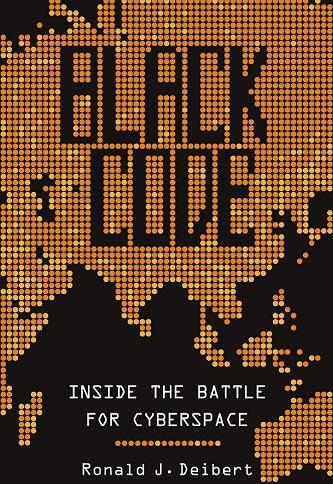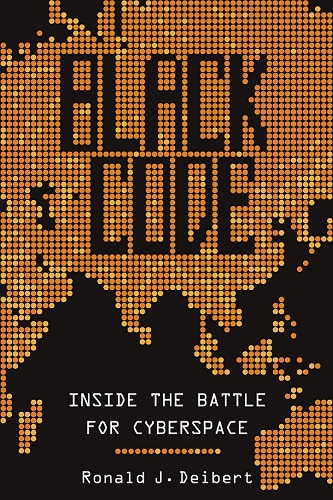Die ursprüngliche Verheißung des Internets als globaler Gemeinschaftsraum für geteiltes Wissen und Kommunikation ist in Gefahr. Das beschreibt Ronald Deibert, Direktor des Citizen Lab, in seinem neuen Buch „Black Code“. Darin legt er detailliert dar, wie Unternehmen, Regierungen, Polizei und Kriminelle gemeinsam unsere „digitale Wasserversorgung vergiften“ – und dass wir uns wehren müssen.
Über das kanadische Citizen Lab und dessen Direktor Ronald Deibert haben wir hier wiederholt berichtet. Heute ist das neue Buch von Deibert erschienen: Black Code: Inside the Battle for Cyberspace
As cyberspace develops in unprecedented ways, powerful agents are scrambling for control. Predatory cyber criminal gangs such as Koobface have made social media their stalking ground. The discovery of Stuxnet, a computer worm reportedly developed by Israel and the United States and aimed at Iran’s nuclear facilities, showed that state cyberwar is now a very real possibility. Governments and corporations are in collusion and are setting the rules of the road behind closed doors.
This is not the way it was supposed to be. The Internet’s original promise of a global commons of shared knowledge and communications is now under threat.
Cory Doctorow von Boing Boing hat es schon gelesen und eine Rezension geschrieben: How to make cyberspace safe for human habitation
Ronald Deibert’s new book, Black Code, is a gripping and absolutely terrifying blow-by-blow account of the way that companies, governments, cops and crooks have entered into an accidental conspiracy to poison our collective digital water supply in ways small and large, treating the Internet as a way to make a quick and dirty buck or as a snoopy spy’s best friend. The book is so thoroughly disheartening for its first 14 chapters that I found myself growing impatient with it, worrying that it was a mere counsel of despair.
But the final chapter of Black Code is an incandescent call to arms demanding that states and their agents cease their depraved indifference to the unintended consequences of their online war games and join with civil society groups that work to make the networked society into a freer, better place than the world it has overwritten.
Sein Fazit:
Black Code is a manifesto for a 21st-century form of network stewardship, a sense of shared responsibility toward our vital electronic water supply. It’s a timely rallying cry, and sorely needed.
Das Buch ist 320 Seiten stark, bei Random House erschienen und erhältlich als Totbaum oder e-Book. Vorwort und Einführung gibt’s als Leseprobe:






0 Ergänzungen
Dieser Artikel ist älter als ein Jahr, daher sind die Ergänzungen geschlossen.